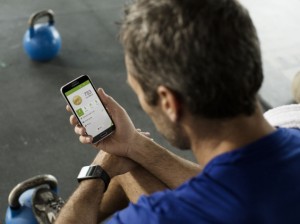 The Samsung Galaxy S5 has just received a new feature that lets users measure their stress levels. Samsung’s proprietary S Health app has been updated to leverage the heart rate sensor on the Galaxy S5 to check stress levels of the user.
The Samsung Galaxy S5 has just received a new feature that lets users measure their stress levels. Samsung’s proprietary S Health app has been updated to leverage the heart rate sensor on the Galaxy S5 to check stress levels of the user.
Sammy Hub reports that the new update lets S Health app to automatically make a chart that shows the stress levels on an hourly, daily or a monthly basis of the user. The report also includes a screenshot from the new S Health app showing a separate ‘Stress’ measuring window that asks users to place finger on the heart rate sensor.
The heart rate sensor, located on the rear panel of the Galaxy S5 just below the camera, doesn’t measure users’ pulse continuously. Rather, a user needs to hold the finger on the sensor for about five seconds before and after any specific activity. The information gets stored in Samsung’s S Health app.
However, it’s worth noting that the South Korean in the past had been warning that the S Health app readings on the Galaxy S5 are not meant for clinical and medical use.
When Samsung launched the Galaxy S5, after weeks if not months of anticipation, at MWC, some of the biggest new features being touted on the handset by the company included a fingerprint scanner on the home button, the 16-megapixel camera, and the IP67 certification that made it dust and water-resistant.
The smartphone also features a new design in terms of the back panel now being perforated, and available with four colours at launch, and optional designer back panels.
The new flagship from Samsung went on sale worldwide in April in 125 countries including Europe, Middle East, North America, Latin America, and India.
The South Korean giant, in an attempt to boost the sales of its new flagship smartphone, also offered limited free subscriptions to various premium services, paid apps, and cloud storage accounts with the Galaxy S5.
The Galaxy S5 includes freebies for cloud computing apps, news apps and fitness-centric apps for their health focused Galaxy S5 with heart rate monitor.
Source-NDTV








